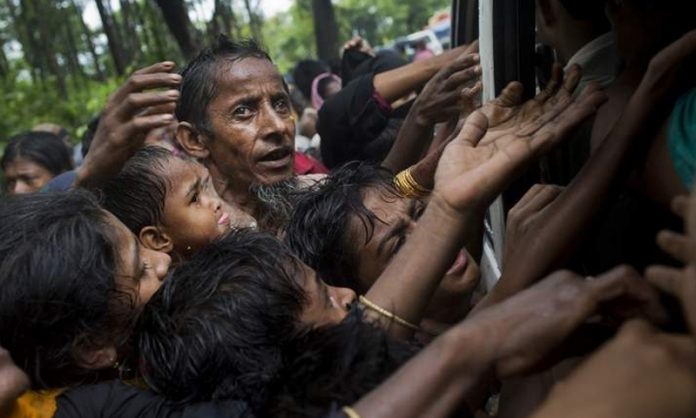ANKARA: At least 9,000 Rohingya were killed in Myanmar’s western Rakhine state from Aug. 25 to Sept. 24, a global humanitarian organization said on Thursday.
Doctors Without Borders published the figures after conducting surveys in refugee camps in Bangladesh.
According to the report, the deaths of 71.7 percent or 6,700 Rohingya were caused by violence. They include 730 children below the age of 5.
It said that more than 647,000 Rohingya have crossed from Myanmar into Bangladesh since Aug. 25, according to UN figures, the number is 656,000. The refugees are fleeing a military operation that has seen security forces and Buddhist mobs kill men, women and children, loot homes and torch Rohingya villages.
“We met and spoke with survivors of violence in Myanmar, who are now sheltering in overcrowded and unsanitary camps in Bangladesh,” he said.
“What we uncovered was staggering, both in terms of the numbers of people who reported a family member died as a result of violence, and the horrific ways in which they said they were killed or severely injured.”
The peak in deaths coincides with the launch of the latest “clearance operations” by Myanmar security forces in the last week of August, said Dr. Sidney Wong, the group’s medical director.
“Gunshots were the cause of death in 69 percent of the violence-related deaths, followed by being burned to death in their houses (9 percent) and beaten to death (5 percent).
“Among children below the age of 5, more than 59 percent killed during that period were reportedly shot, 15 percent burned to death in their homes, 7 percent beaten to death, and 2 percent died due to landmine blasts.”
Wong said the signing of an agreement for the return of the refugees between the governments of Myanmar and Bangladesh is “premature”.
The Rohingya should not be forced to return and their safety and rights need to be guaranteed before any such plans can be seriously considered, he added.
The Rohingya, described by the UN as the world’s most persecuted people, have faced heightened fears of attack since dozens were killed in communal violence in 2012.





